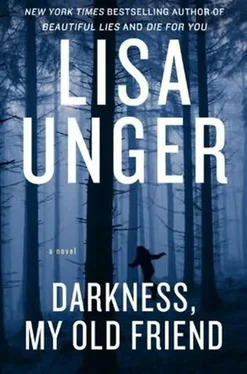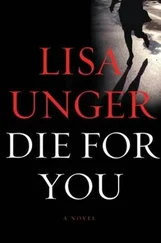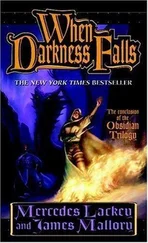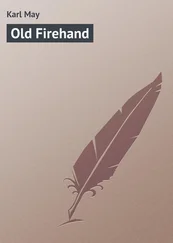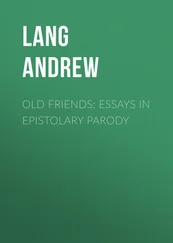When she glanced up at Ray again, he looked chastened. “I’m sorry, Eloise.”
“I know you are, Ray.”
He reached across the table and touched her hand. And that’s when she saw it: a flash of light, a breathless run through dead leaves, a spinning fall, then a night sky above the trees. Then there was only the fading wallpaper of her own kitchen, Ray looking at her intently.
“What is it? What did you see?” he asked. His eagerness exhausted her.
“Someone running…” She couldn’t say more. It just wasn’t clear.
“Where?”
She shook her head, her heart still racing. “I don’t know.”
“But that’s good, right? It means you’re clearing up.”
“I suppose I am.”
He was the first one to do that to her, to touch her and make her see. Before him it had always been scattershot-dreams, day visions, breaks in her consciousness. Not all her life. She did not descend from a long line of witches and seers. She was not one of a clan of aunts and sisters, mothers and grandmothers who mixed purple potions and sprinkled stardust spells for love.
No, it was an accident. A terrible car accident that had taken her husband and one of her children, left her in a coma for five weeks, left her with… what? On the bad days-and there were so many really, truly bad days-it was a curse. On the good days, it was a gift. For a while she thought she’d lost her mind. And then she’d found Ray.
“Has it occurred to you that I’m a nutcase?” she asked. “That all these years you’ve been running around according to the rantings of a madwoman?”
Ray gave a little laugh. “So many years and more than twenty cases solved that no one else could have solved. Not crazy. Troubled, maybe.”
He smiled at her, warm and sad. Years ago that smile would have had them upstairs tearing at each other’s clothes. But that appetite, too, had waned to nothing. If she didn’t have to eat to survive, she wouldn’t.
He got up, brought the cups to the kitchen, and rinsed them in the sink.
“Call me if you dream tonight,” said Ray.
“I will,” she said. She felt a weariness settle into her body. “You know I will.”
She stood up to gaze out the window and saw Oliver making his way up the yard. She felt a surprisingly strong wave of relief. So she hadn’t given up all her attachments. Animals were easy to love, to live with. They wanted so little… just a bowl of food and a warm body to sit on, to sleep with, and they were forever loyal. That was about all she had to give.
Why does it get dark so early here?” Willow had perfected the art of the miserable slouch. Her whole body got into it, slim torso scooped, shoulders folded, head bowed. Bethany was pretending not to notice.
“It doesn’t get dark any earlier here than it does in the city,” Bethany answered.
“Yes it does.”
“No it doesn’t.” She had been trying to keep that annoyed edge out of her voice when talking to Willow. But the kid didn’t make it easy. Everything was an argument. “There’s less ambient light here,” she went on to explain. “Fewer streetlights, buildings, cars.”
“Tell me about it.” Her daughter stared at the window hopelessly, like some character from The Road looking out over an apocalyptic wasteland.
Bethany had also promised herself to start ignoring Willow’s comments about The Hollows. They lived here now. And that was that. Willow would learn to accept it in time, even love it. I don’t know, I certainly never accepted it when my parents moved me to the burbs in the eighties , Philip had said. I never fit in, ran screaming after graduation . She really needed to stop talking to her agent about these things-he didn’t have any children, and the only way he was leaving Manhattan was in an urn.
They drove up Main Street. The bustling town center had sold her on The Hollows before she’d even seen the house. Bethany loved the picture-postcard look of the place-the cute little bistro and the bakery, the yoga studio, and the small art gallery. Just off the square was a pretty church, a decent library. Some of the bigger chains like Crate & Barrel and the Gap had taken up residence among the cute boutiques and the Hollows Brew. But everything seemed to fit together nicely, a happy blend of small and large businesses, all nestled in restored historic buildings.
Mostly, it was peaceful, easy. Even now when Main Street was bustling with people walking home from the train station, doing last-minute errands and shopping before dinner, walking kids home from after-school activities, there was a harmonic aura to the town, none of the frenetic energy of the city at this time of day. And that’s what Bethany had needed when she made the decision to move-peace, harmony, a shift to a quieter, more normal life. After the chaos of the last eighteen months, it’s what she’d truly believed they had both needed. Willow passionately disagreed.
Bethany found a spot in front of the coffee shop and stopped the engine. She looked over at her daughter to see that she was making no move to exit the vehicle, was maintaining her beleaguered slouch. Willow rested her head against the glass.
“Well, let’s go,” said Bethany. She made a hoisting motion with her arms.
“No way,” Willow said. She turned her body away. Bethany could see her staring at the window of the coffee shop. “I’m not going in there.”
“Willow.”
“If you want to go have a cup of coffee with the friendly neighborhood ax murderer, be my guest.” But Willow had those worried eyes. What she’d seen in the woods had frightened her; she was too cool to admit it.
Bethany supposed it was her fault that her daughter had no qualms about asserting herself in their relationship. A generation ago her mother would have said, Don’t you dare talk back to me. Get your butt out of this car . And Bethany would have complied, because that’s who she was.
But Bethany didn’t talk to Willow that way, and neither did any of her friends talk to their children that way. Today it was all about communication and negotiation, at least when it came to the luxury issues-such as whether to wait in the car or not.
She and Willow were close, maybe too close. But that’s how it was sometimes with an only child. Their relationship had almost a sibling quality, because they’d always spent so much time together, Bethany’s love and attention never diffused by other children. And Bethany had never hesitated to get down on the floor with Willow to color or make Play-Doh animals. She had never been the disciplinarian. That had been her husband’s role, once upon a time. Bethany picked her battles.
“Suit yourself,” she said. “But do not get out of this car for any reason. Do you understand? I’ll be two minutes. I’m just getting the phone that you lost.”
Willow made a W with her two thumbs, wiggling her figures. Bethany was just hip enough to know that the gesture meant “Whatever.” But Willow had a sweet smile that kept her from seeming too awful.
“I’m serious.” Bethany took the keys and climbed out of the car.
“Hey, it’s cold,” Willow said. “Leave the car running.”
“Ha,” said Bethany. “As if . You’re cold? Come inside.”
“Mom!”
Bethany shut the door on the rest of Willow’s tirade, turned to see her mock-shivering in the seat. She pressed the lock button on the remote, even though of course Willow could unlock the car from the inside. She wouldn’t be long, just a couple of minutes. She looked back at Willow before she entered the coffee shop. Willow was watching her but quickly averted her eyes.
***
A little bell rang as Bethany stepped from the damp cold into the warm interior-the aroma of coffee beans, glowing amber lights, the hiss of a milk steamer. She looked around the room, realizing that she didn’t know whom she was looking for, precisely. A couple of young girls were giggling by the fireplace, a pile of books and notepads unopened on the table between them. A young mother fed her toddler some yogurt. Willow had described the man she saw as large ( GI-normous ), with long, dark hair ( like Vlad the Impaler or something ). There was a man sitting in the far corner of the shop, his head down over a book. He did have long hair, tied back. But wearing wire-rimmed glasses, with a pencil in his hand, he hardly looked menacing.
Читать дальше
